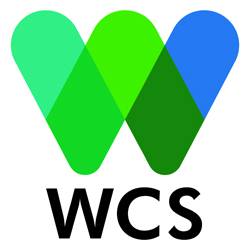Newswise — Brazzaville, Republic of Congo, September 5, 2024 - To help finance the protection of the world’s remaining high integrity forests, Congo’s Minister of Forest Economy and WCS have launched on August 30 Africa’s first HIFOR project in Nouabalé-Ndoki National Park.
HIFOR (the High Integrity Forest Investment Initiative) was created by the Wildlife Conservation Society (WCS) to address the lack of market-based finance for tropical forests that retain high ecological integrity. Largely free from degradation, these forests provide climate, biodiversity and socio-economic benefits that are critical for maintaining a healthy planet.
The initiative finances the conservation of these forests through the sale of HIFOR units, each of which represents one hectare of well-conserved high integrity tropical forest within a large landscape of high ecological integrity.
On August 30, Congo’s Minister of Forest Economy and WCS launched Africa’s first pilot project to generate HIFOR units and prepare for an initial transaction in the world’s first site to be recognized as a Key Biodiversity Area for its ecological integrity: Nouabalé-Ndoki National Park. The project was first endorsed on Wednesday August 28 by the Republic of Congo's Forest Carbon Task Force in a meeting chaired by Prime Minister Anatole Collinet Makosso.
High integrity tropical forests are estimated to remove around 1.8 billion tons of CO2 per year (net) from the atmosphere. Without the active role of high integrity forests in storing carbon, the world would already be at least 0.5°C hotter than it is today. Despite their climatic and ecological significance, the main blocks of high integrity forest declined by 12% between 2000 and 2020 and are increasingly vulnerable to fragmentation, encroachment and degradation.
Current market-based finance for tropical forest conservation does not incentivize protection of high integrity forests, but the HIFOR Initiative seeks to create investable units representing a set of science-backed ecosystem services, and to unlock a continuous stream of finance that support governments and Indigenous Peoples and Local Communities (IP&LCs) to protect their high integrity forests while developing sustainable, low-carbon rural economies and livelihoods.
The Nouabalé-Ndoki National Park covers more than 0.4 million hectares of high-integrity tropical forest, with a net total of over 11 million tons of CO2 estimated to have been absorbed over the past decade.
“The project we are launching today marks a very important step in the development of innovative financial mechanisms enabling our country to make the most of its efforts to conserve forests and their ecosystems” commented Forest Economy Minister Rosalie Matondo at the project launch ceremony in Brazzaville.
HIFOR complements but does not compete with existing financing instruments that credit reductions in emissions from tropical deforestation. A HIFOR unit is a non-compensatory tradeable asset that cannot be used for offsetting purposes, but can be reported within a number of frameworks for contributing to climate change mitigation and biodiversity conservation.
“With threats to high integrity forests constantly evolving and increasing, our efforts to protect them must be relentless. The Congo is fortunate to have many of these forests, and we are very pleased to work with the government to pilot this innovative mechanism to enhance their value and ensure their long-term protection.” emphasized Richard Malonga, WCS Congo Country Director.
WCS is initially piloting HIFOR in sites where we work through strong partnerships with governments and communities, with the aim to demonstrate viability of this new financial. To ensure quality and transparency, early HIFOR projects will be audited individually against the publicly available HIFOR methodology, as WCS continues to evolve the HIFOR initiative, with the aim of scaling impact across broader geographies.
About WCS Congo
For more than 30 years, WCS has played a major role in the conservation of wildlife and wild places in the Republic of Congo, where it has contributed to the creation, expansion and management of three of the five national parks. WCS works closely with the government, national stakeholders and local communities to protect Congo's rich ecosystems.
About Wildlife Conservation Society (WCS)
WCS combines the power of its zoos and an aquarium in New York City and a Global Conservation Program in more than 50 countries to achieve its mission to save wildlife and wild places. WCS runs the world’s largest conservation field program, protecting more than 50 percent of Earth’s known biodiversity; in partnership with governments, Indigenous People, Local Communities, and the private sector. It’s four zoos and aquarium (the Bronx Zoo, Central Park Zoo, Queens Zoo, Prospect Park Zoo, and the New York Aquarium ) welcome more than 3.5 million visitors each year, inspiring generations to care for nature. Visit: newsroom.wcs.org. Follow: @WCSNewsroom. For more information: +1 (347) 840-1242. Listen to the WCS Wild Audio podcast HERE.

